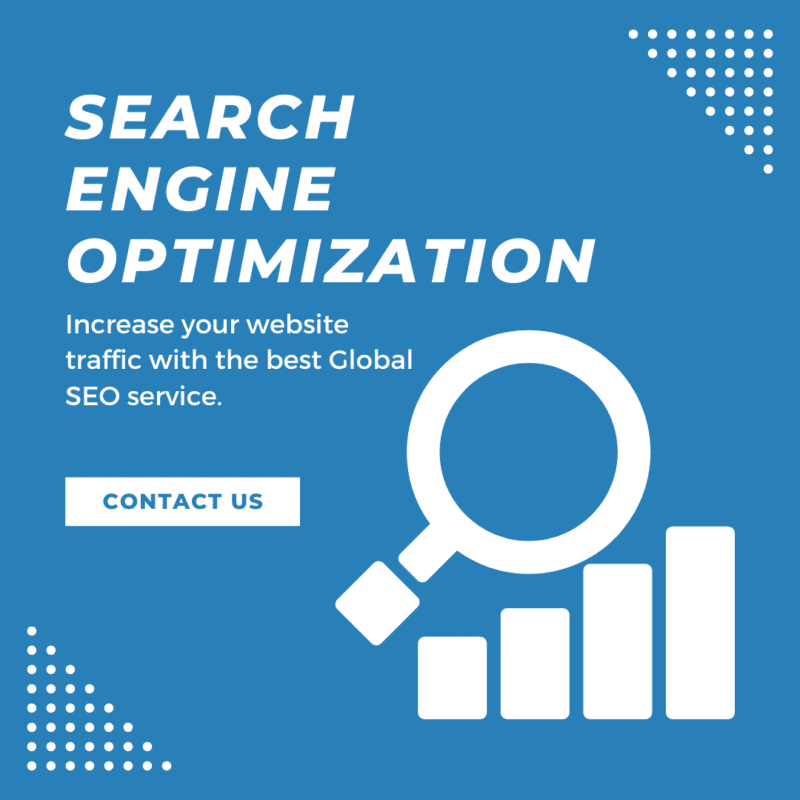No products in the cart.
Delving into the intricacies of international digital expansion, we recognize the pivotal role of SEO Global in fortifying a brand’s online presence across varied geographical boundaries. It’s a strategic quest to elevate organic traffic and strengthen global brand visibility by tailoring content to diverse markets and languages.
Our guide navigates the complexities of optimizing website architectures and localizing content to resonate within international markets, ensuring a robust online marketing strategy that’s attuned to the nuances of global search engine results. With laser-focused insights on SEO careers and leveraging tools like Google Analytics, this journey equips you with the expertise to harness the true potential of SEO Global.
Identifying Target Markets and Languages
In the realm of SEO Global, grasping the nuances of our target markets and the languages they speak is pivotal. We start by diving deep into understanding their needs and problems, which involves analyzing traits like age, gender, and consumption habits. This knowledge is not just theoretical; it’s practical, guiding our keyword research and content creation to drive relevant traffic and boost conversion rates.
To get these insights, we turn to powerful tools such as Google Analytics and SEMrush Market Explorer Tool, which shed light on user behavior and preferences. They provide a wealth of data on demographics, device usage, and user flow, helping us paint a detailed picture of our audience.
For an SEO organization keen on international reach, it’s crucial to frequently reassess and hone in on who our audience is, especially as market conditions evolve. When it comes to multilingual SEO, implementing hreflang tags is essential, ensuring search engines present the correct language version to users. Additionally, creating language-specific URLs for each website version is a smart move, making sure our content is translated, culturally relevant, and engaging.
Here’s a structured approach to identifying your target markets and languages:
1. Analyze Current Customers: Use CRM data and sales teams’ insights to understand existing customers better.
2. Study Site Traffic: Employ tools like Google Analytics for in-depth analysis of site visitors.
3. Engage Directly: Contact customers through forums and phone calls for firsthand insights.
4. Conduct Keyword Research: Identify terms that resonate with your audience.
5. Competitor Analysis: Use SEMrush to learn from competitors’ strategies.
6. Language and Region Targeting: Implement hreflang tags for multilingual SEO and consider language-specific URLs.
By following these steps, we ensure our online presence is optimized for search engine results, creating more SEO opportunities and paving the way for a successful global SEO strategy.
Optimizing Website Structure for International SEO
In the journey of expanding our online presence with SEO Global, it’s crucial to optimize our website structure for international audiences. Here’s how we can ensure our site is ready for visitors from around the globe:
· Choose the Right URL Structure: Select from options like ccTLDs for country-specific targeting or subdirectories for language targeting. Each has its benefits depending on our goals. For instance, a ccTLD, such as .co.uk, can boost our local presence in the UK.
· Implement Hreflang Tags: These tags are essential for telling search engines which language we use on a specific page, thus improving our global SEO efforts. They help in serving the correct language version of a page to users.
· Localize Content: We must cater to the local audience using their language, currency, and cultural references. This approach makes it clear to users that the page is specifically for them.
· Optimize Technical Elements: Addressing site speed with tools like Google’s PageSpeed Insights and fixing duplicate content with canonical tags are part of the technical groundwork for international SEO.
By focusing on these areas, we’re setting a solid foundation for our website to attract and engage visitors from different regions, enhancing our SEO opportunities and solidifying our global online presence.
For more in-depth guidance, consider exploring the comprehensive insights on international SEO strategies and learn about optimizing site structure for maximum SEO impact.
Creating and Localizing Content
In the landscape of SEO Global, creating and localizing content is a crucial step in connecting with international audiences. To embark on this, we first identify the specific countries and languages we aim to target. We meticulously tailor our content for each locale to align with the local language, culture, and regional preferences, ensuring our message resonates deeply with the intended audience.
· Content Localization: This process involves more than just translating text; it’s about adapting the content to reflect each target market’s linguistic and cultural nuances. Doing so ensures that our brand and marketing materials, product documentation, and legal content are understood, relevant, and engaging to the local audience.
· Technical SEO Considerations: We implement region-specific URLs and employ hreflang tags to direct users to the appropriate language version of our site. Additionally, we tackle duplicate content and canonicalization issues, optimize website speed, and perform regular audits to maintain a solid online presence in each market.
· Performance Analysis: Using tools like Google Analytics 4 (GA4), we closely monitor user behavior and track keyword rankings with the Position Tracking tool to measure the effectiveness of our international SEO efforts.
By integrating these strategies into our SEO organization, we aim to create a seamless experience for users worldwide, enhancing our search engine visibility and ultimately driving more traffic and conversions.
Monitoring and Improving International SEO Performance
In the quest to amplify our online presence through SEO Global, monitoring and improving international SEO performance becomes a cornerstone of our strategy. We’re not just chasing higher rankings; we’re looking to understand our diverse audience’s behaviors and preferences to deliver content that strikes a chord across different regions. Here’s how we keep our finger on the pulse:
· Track and Analyze Rankings: Regularly check where our pages stand in search engine results for targeted keywords and compare our performance to our competitors. Tools like Google Search Console and Semrush are invaluable here, providing insights that help us refine our SEO tactics.
· Perform SEO Audits: Use an SEO audit tool to uncover any issues holding us back. This step is crucial for maintaining a well-optimized site that appeals to search engines and users.
· Localize and Optimize: Ensure our content is translated and culturally adapted to resonate with each target market. This includes optimizing for local searches and preferences, varying significantly from place to place.
We can make informed decisions that propel our global SEO forward by embedding these practices into our routine. We leverage tools like Semrush for competitor analysis and keyword research, and we dive into Google Analytics to measure user engagement. We aim to create a seamless experience for our global audience, optimizing our SEO strategies to cater to each unique market and maximizing our online marketing efforts.
FAQs
What does ‘SEO global’ refer to? Global SEO is the process of crafting and fine-tuning content to engage audiences across various international markets. It ensures that when international users search online within their own countries, your website appears in their search results, potentially boosting conversions.
What are the top recommended practices for effective SEO? The most effective SEO practices for increasing organic site traffic include:
- Identifying the right keywords.
- Creating relevant content.
- Optimizing page titles and descriptions.
- Optimizing images.
- Using internal links.
- Optimizing URLs.
- Reducing website load times.
- Building quality backlinks.
How can I improve my international SEO? To enhance your international SEO, consider these steps:
- Select the target regions and audiences.
- Decide on hiring an international SEO agency.
- Conduct international keyword research.
- Choose an appropriate international domain structure.
- Tailor content to the regional language and preferences.
What is the ultimate SEO strategy globally? The best global SEO strategy for 2023 involves:
- Targeting long-tail keywords.
- Using keywords in image alt text and headers.
- Focusing on a great user experience (UX).
- Incorporating various media types.
- Employing internal links.
- Emphasizing “Top of the Funnel” keyword phrases.
For local SEO, ensure to concentrate on local SEO practices.
Which companies are leading in SEO services globally? The top enterprise SEO companies worldwide for 2024 include Thrive, Victorious, Seoprofy, Smartsites, Ignite Visibility, Netpeak, Intero Digital, and Directive.
Is SEO USA a credible organization? SEO USA is recognized as a highly reputable education non-profit.
Is SEO still an essential marketing strategy in 2023?SEO remains a critical component of marketing strategies in 2023, with 80% of Chief Marketing Officers (CMOs) maintaining or increasing their investment in SEO. It represents about 10% of the average marketing budget.
Which five SEO strategies are crucial for increasing organic traffic? The top five SEO strategies to boost organic traffic to your e-commerce website are keyword research and optimization, optimizing website structure, creating quality content, utilizing structured data, and rectifying technical SEO errors.
What distinguishes local SEO from international SEO? Local SEO focuses on attracting customers from a specific geographic area through local search optimization, while international SEO targets a global audience. Both aim to improve website visibility using keywords but differ in their geographic scope.
Who is considered the number one SEO expert in the world? Brian Dean, the founder of Backlinko—a blog and YouTube channel endorsed by Forbes—is the top SEO expert globally. His blog’s extensive reach, with over 5 million annual visitors, has earned him recognition from Success Magazine as the world’s leading SEO expert.
What is the most effective SEO strategy for the year 2023? For 2023, the most effective SEO strategy is keyword optimization. Web analysts and SEO experts agree that optimizing on-page content around target keywords is crucial for achieving high rankings on search engine results pages (SERPs).
Jason
Jason, started in 2014 as a portfolio and digital marketing service website that helps businesses increase their online presence and revenues. Jason has written and contributed content to Search Engine Optimization communities, EzineArticles, Evancar Michael, MOZ community and more. Jason is also a result-driven independent contractor for book authors looking for self-publishing service and book promotion service. He also provides SEO service to different industries.



